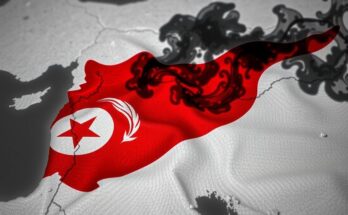The recent fall of Syrian leader Bashar al-Assad has prompted Yemenis to reflect on the future of the Houthi movement. Mixed sentiments arise, as some see potential opportunities for change, while others fear a resurgence of conflict. The effects of regional shifts underscore the fragility of Yemen’s ceasefire and the ongoing challenges posed by the Houthis’ influence in the protracted war, stemming from their ties to Iran.
In Yemen, the recent fall of Syrian President Bashar al-Assad has sparked diverse reflections among Yemenis, particularly regarding the potential fate of the Iran-aligned Houthi movement. Many view this development as both an opportunity and a cautionary tale about the changing political landscape in the region. For some, the fall of Assad signifies a possible shift toward a decreasing influence of Iranian-backed regimes, while others fear a resurgence of violence if the Houthis feel threatened. In Sanaa, citizens express mixed feelings; some celebrate the upheaval of an oppressive regime, hoping the Houthis could suffer a similar fate, while others lament the potential for renewed conflict amidst a fragile ceasefire. Despite their apparent military strength and territorial control, the Houthis must remain vigilant amidst the evolving dynamics involving their adversaries, regional powers, and the enduring complexities of Yemen’s protracted war.
The political climate in Yemen remains tense as the Houthis, a group that has been a significant player in the ongoing conflict, control large areas of the country and receive backing from Iran. Their dominance in Sanaa and other regions has caused ongoing tensions with the Saudi-led coalition efforts to restore the internationally recognized government. However, the recent developments in Syria, particularly Assad’s fall, have reshaped perceptions among Yemenis regarding their own conflict and the potential future of Houthi governance. A persistent humanitarian crisis complicates the situation further, creating unease about what the future holds for the Yemeni people amidst their long-standing strife.
The dynamics following the fall of Bashar al-Assad present both opportunities and risks for Yemen’s political landscape, particularly concerning the Houthis. As factions grapple with their ambitions and the shifting allegiances, the situation remains precarious. The potential for conflict renewal juxtaposed with the hope for a change in governance underscores the complexities at play as Yemenis navigate their aspirations for stability and peace amid external pressures and internal divisions. The future remains uncertain, with potential ramifications for both the Houthis and their opposition.
Original Source: www.aljazeera.com




